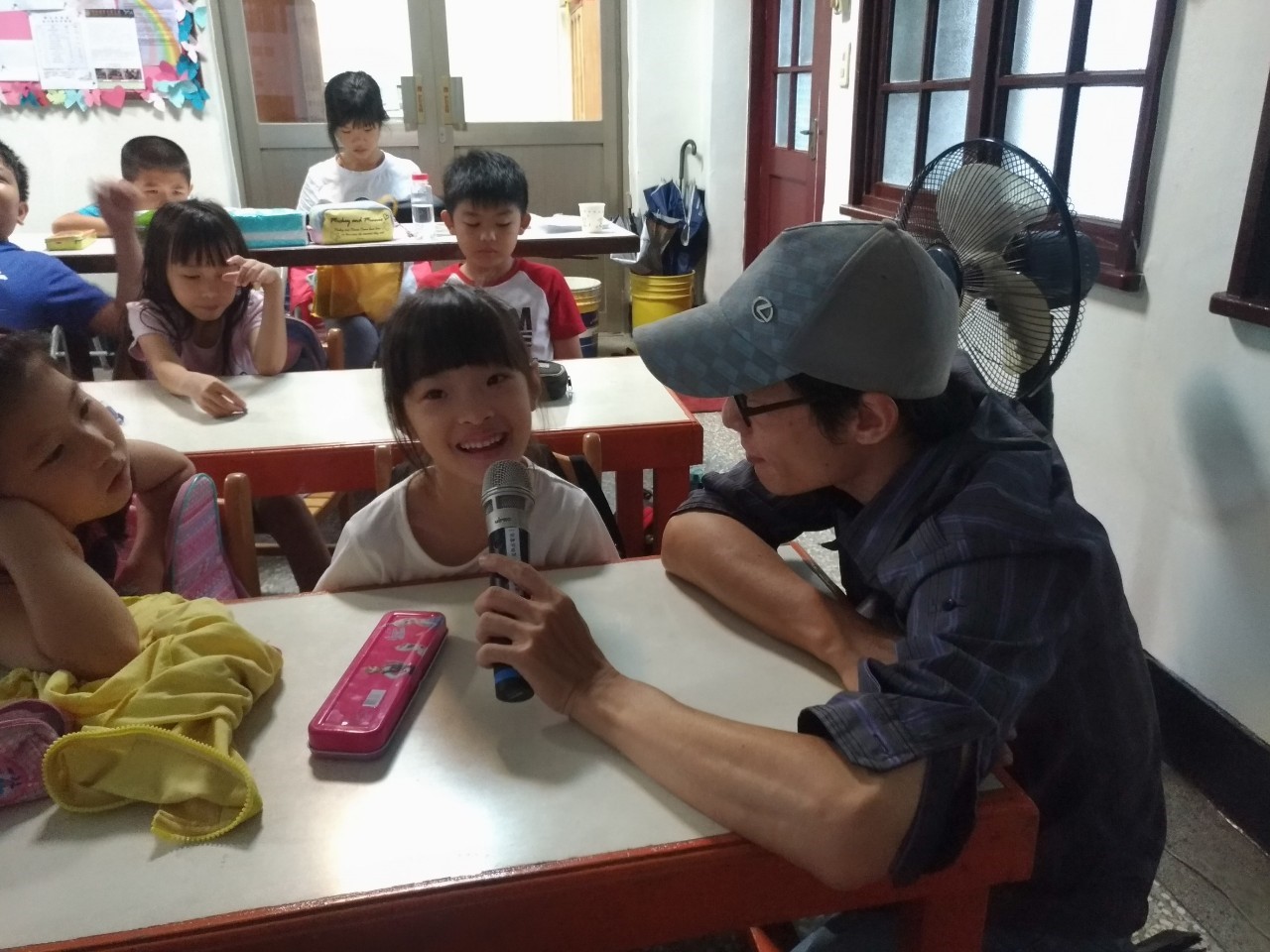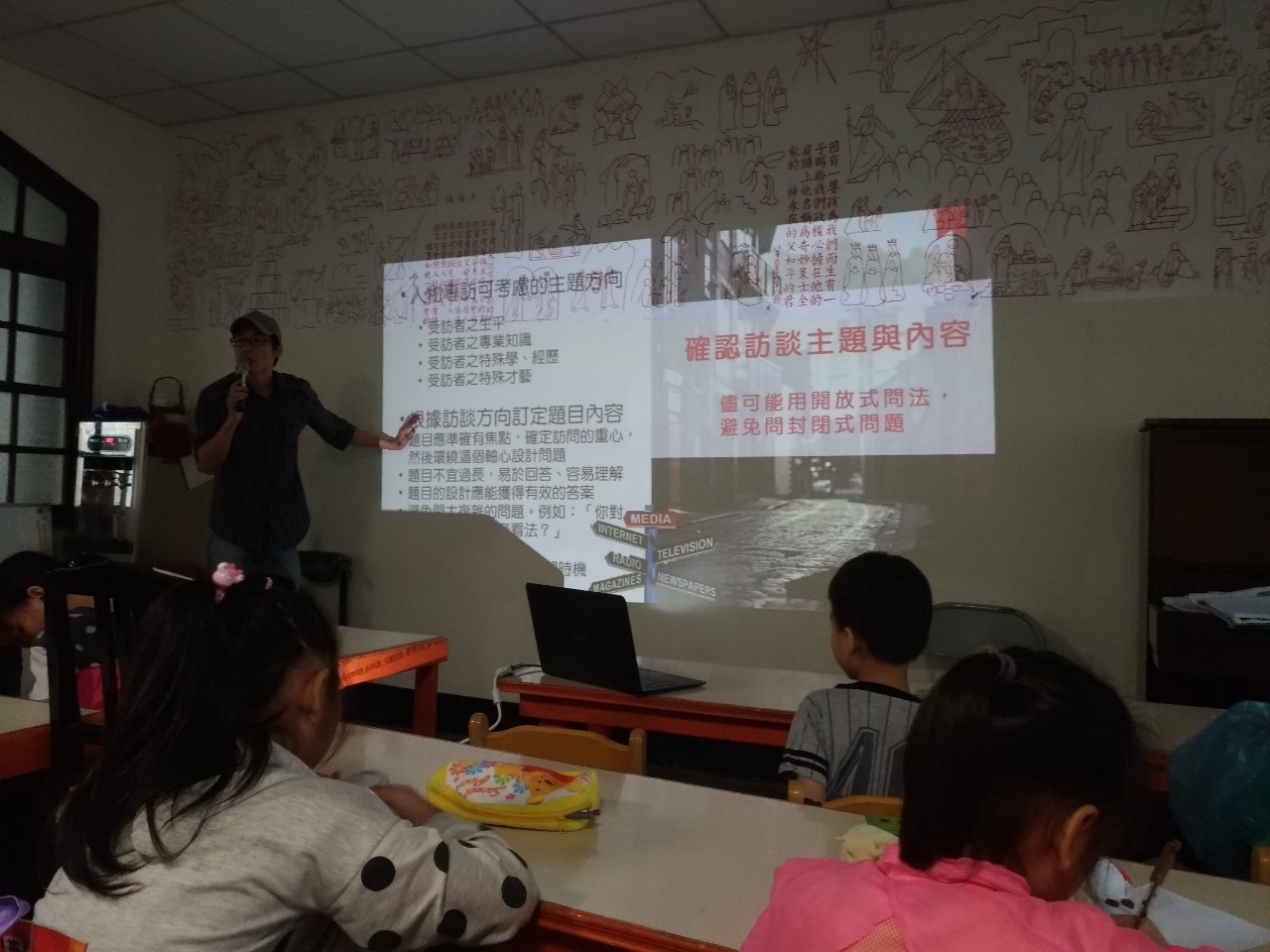|
Author: CHENGJIA ZHANG
Photo: GUOZHI LIAO
Even after more than two decades of peaceful time, as long as you walk into the Haiguang community, you can still feel the old good times through the military facilities and the characteristics of the village. In 1964, the KMT Government built a "Haiguang 4th Village" in the Fengshan District of Kaohsiung in order to resettle a large number of military troops. The residents were mostly Marine Corps officers and their families. The "original Japanese Navy Fengshan Wireless Telecommunications Station", the national monuments, which is located in the community, was one of the three major telecom stations in Taiwan during the Japanese colonial period. Later, the KMT Government also established the “Ming-De Navy Training Center" to discipline the so-called "unruly" in the military.

Speaking of the times in the village, the chairman of the New Haiguang Community Development Association, Liao Guo-zhi, shared with us: "In the age of the village, most people lived in a very hard life, and caused everyone was very united." Liao's brother, who was once a professional soldier, inspired by the faith, made a wish to walk into the masses and serve them. When the association was first established, the main goal of community was to serve the elders. Such as build the happy farm and chicken coop , the community share meal, and variety of talent teams...etc.
In 2016, due to the culture and stories of the village are slowly disappearing as the elderly fade away, the Haiguang community began to strive for the funding of the Department of Cultural Affairs in order to carry on the resource inventory. In 2017, the community newspaper was launched and began to systematically record the stories of the people in the village, and in 2018, the children of the community were bring to visit the elders to discover the story in the village.
Mr. Liao excitedly shared with us the results of teachers and volunteers taking the community children to participate in community surveys. Like there’s a lady, who was married to the village. She recalled that her husband as a soldier in the era of confrontation between the two sides, he was often in a state of preparation for war. "It is appropriate for her husband not to be at home." She said. Therefore, women in the village at that time often had to take of the whole family. She described this: "The mother-in-law in the village is all very "snobbish", when I first came here, I felt great pressure and was afraid of making mistakes. Unlike now, the current relationship between ." In such an era, the mothers in the village then had persevering life attitude. However when remembering time, she couldn't help but say: "The fear that don’t know if my husband can come back is no way to describe it. It's really difficult."
And the story of a 92-year-old retired soldier is even more interesting. In the 1950s and 1960s, he served as a driving officer, especially drove for the US military generals. He shared "a story of a dollar" with us. He said: "At that time, the driver of the US military general was a super leisurely job. The generals of the US military gave a generous tip. Usually, it was a dollar. You should not underestimate a dollar, it was a big amount at that time." This was a very special case at that time, because the residents in the village were generally living in a hard time, due to the presence of the US military, they brought unexpected changes to their family.
In the process of investigating the story of the village, besides the stories of soldiers and their families, anotherill-fatedgroup discovered. A mother who retreated from Dachen Island to Taiwan in 1955 sharedherstories with us. After coming to Taiwan, because shewasneithera soldier nor a civil servant, she couldn’treceive the subsidy from governmentfor the military. She felt that she waslike a refugee. Herlife is very difficult, but in order to continue living, she can only grit her teethto go on.
Through such a investigation, besides tolet the children inthe community canunderstand the culture of the village, and also connectthe different generations. Mr. Liao shared with uswhich his beliefbrought to him: "Christians talk about love, share the love. Watching the elders tell their own stories, we can see not only the stories of their lives, but also the brilliance. And this moment, it is worth our efforts."

This year, Haiguang Community will continue to cultivate the inheritance of the culture of the village. Through the way of image recording and more deeply interviews, it’s believed that with the residents who love the community, the spirit and image of the village can be recorded and past to our next generation forever.
Authorization in this article:CC3.0 BY-NC-ND
|





